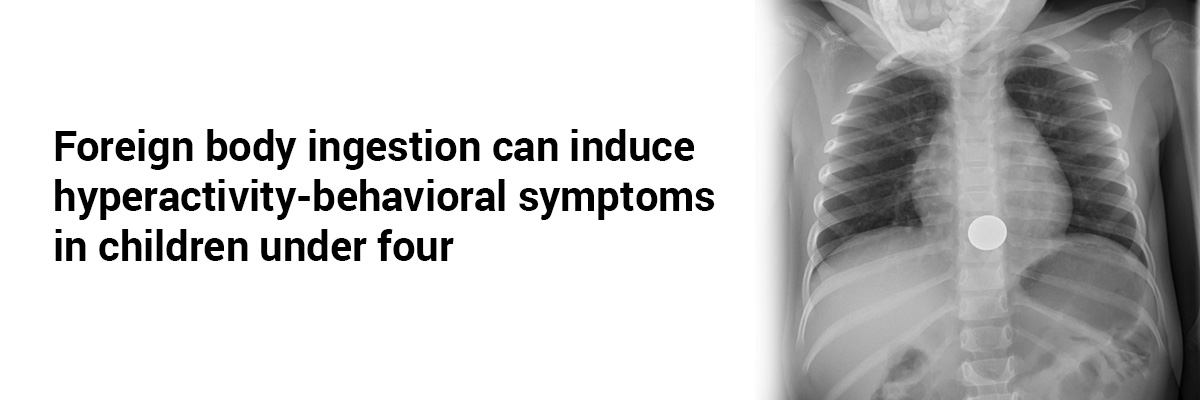
Foreign body ingestion can induce hyperactivity-behavioral symptoms in children under four
A new study aimed to compare the social, emotional, and behavioral status of children with foreign body ingestion to that of healthy individuals.
This case-control study was conducted at a tertiary hospital over 32 months. The study included children aged 1-4 years admitted to the pediatric emergency department for foreign body ingestion, excluding those with known autism spectrum disorders, cerebral palsy, and incomplete evaluations. A matched control group of healthy individuals was also included. Both groups were assessed using the Aberrant Behavior Checklist (ABC) and the Brief Infant-Toddler Social Emotional Assessment (BITSEA) scales. Logistic regression was used to identify predictors of foreign body ingestion.
Overall, 150 children were included. It was observed that children with foreign body ingestion had significantly higher scores on all ABC subscales – mean irritability, hyperactivity/noncompliance, lethargy/social withdrawal, stereotypical behavior, and inappropriate speech,as well as on the BITSEA problem area scores. Hyperactivity emerged as a significant predictor of foreign body ingestion.
The findings revealed that young children with foreign body ingestion exhibited significantly higher behavioral and emotional problems compared to healthy children. Hyperactivity was a key predictor of foreign body ingestion. The mean scores in the hyperactivity domains of the ABC and BITSEA were notably higher in children with foreign body ingestion and accidental poisoning than in those without. Thus, hyperactivity-behavioral symptoms may be more common in children below four years, with foreign body ingestion. Patients with foreign body ingestion and accidental poisoning should be advised an initial behavioral and developmental screening, followed by an in-depth evaluation by a developmental pediatrician if warranted.
Source: Öztürk B, Güngör A, Yoldaþ TÇ,et al. Indian pediatrics. 2024 May;61(5):447-51.














Please login to comment on this article